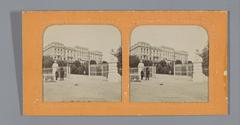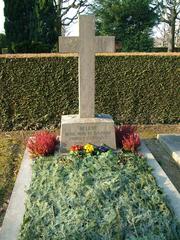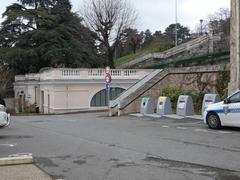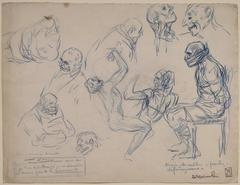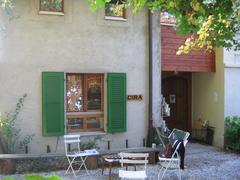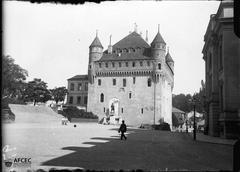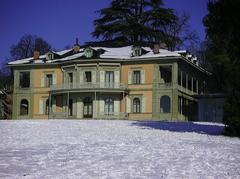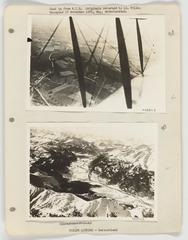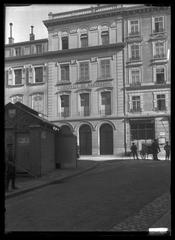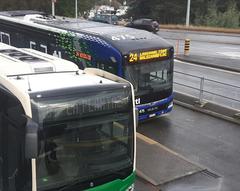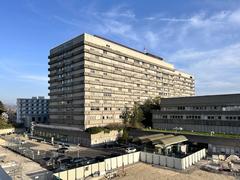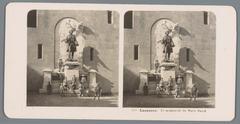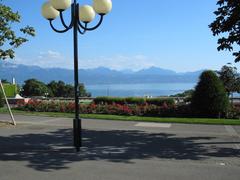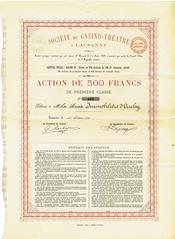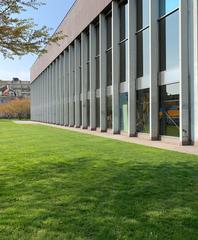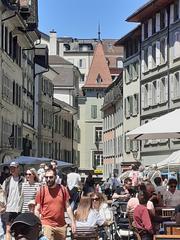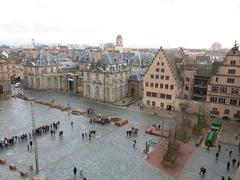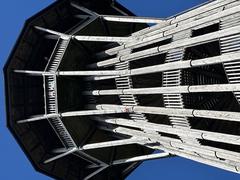Archives of the City of Lausanne: Visiting Hours, Tickets, and Historical Significance
Date: 15/06/2025
Introduction
The Archives of the City of Lausanne are an essential institution in Switzerland, dedicated to safeguarding the city’s documentary heritage and making it accessible to all. Whether you are a researcher, history enthusiast, genealogist, student, or casual visitor, the archives offer a unique window into Lausanne’s evolution from its Roman origins through the medieval era to the modern day. Visitors benefit from a broad array of materials—manuscripts, municipal records, photographs, maps, and personal collections—each contributing to a rich narrative of urban development and cultural identity. With free entry, an expanding digital presence, and regular community programming, the archives are a central hub for historical exploration and cultural engagement (Lausanne City Libraries and Archives; BCU Lausanne Archives; Lausanne Tourism).
Table of Contents
- Introduction
- History and Development
- Cultural Significance and Community Role
- Collections and Notable Holdings
- Planning Your Visit
- Digital Access and Online Resources
- Collaborations and Outreach
- FAQ
- Visual Highlights
- Conclusion and Next Steps
- References
History and Development
The Archives of the City of Lausanne, known locally as “Archives de la Ville de Lausanne,” were established in the 19th century to centralize and preserve the city’s documentary legacy. The collections have grown significantly, reflecting Lausanne’s journey from a medieval town to a thriving modern urban center. Today, the archives are professionally managed as part of the city’s library network, ensuring both preservation and public access (Lausanne City Libraries and Archives).
Cultural Significance and Community Role
Custodian of Urban Memory
The archives serve as the official repository for municipal documents, including council minutes, urban planning records, civil registers, tax ledgers, maps, and correspondence. These materials provide insights into governance, policy-making, and everyday life, offering researchers and visitors a foundation for understanding Lausanne’s historical trajectory. For example, the renowned 1638 model of Lausanne, displayed at the Musée Historique de Lausanne, is based on archival research (Lausanne History Museum).
Community Engagement
Beyond preservation, the archives actively foster a sense of local identity by documenting daily life, civic events, and diverse community experiences. Collaborations with museums, schools, and cultural bodies ensure that the city’s history remains relevant and accessible (Role of Community Archives).
Collections and Notable Holdings
- Administrative and Legal Records: Council minutes, city department files, urban planning documents, civil registers, tax records.
- Cartographic and Visual Materials: Extensive collections of maps, plans, and photographs illustrating Lausanne’s transformation.
- Private Papers: Diaries, letters, and memorabilia from notable residents and families.
- Thematic Collections: Special exhibitions and selections focusing on prominent figures, families, and cultural milestones.
Planning Your Visit
Visiting Hours and Admission
- Standard Hours: Monday to Friday, 9:00 AM – 5:00 PM.
- Admission: Entry is free for all visitors. Some workshops, guided tours, or special exhibitions may require registration or a nominal fee.
- Temporary Changes: Due to recent renovation and relocation efforts (as of March 2024), physical access may be limited or require advance booking. Always consult the official website for the latest information.
Guided Tours and Workshops
- Tours: Guided visits and thematic workshops are regularly offered for schools, community groups, and history enthusiasts. These programs provide immersive experiences and bring Lausanne’s past to life.
- Special Events: The archives occasionally host open days and temporary exhibitions, often in collaboration with local partners. Advance booking is recommended.
Accessibility and Facilities
- The archives are centrally located and accessible via public transport.
- Wheelchair access and assistance for visitors with disabilities are available; contact the archives in advance to discuss specific needs.
- Facilities include reading rooms, restrooms, cloakrooms, and lockers.
Travel Tips and Location
- Address: Rue du Maupas 47, 1004 Lausanne
- By Public Transport: Easily accessible by metro and bus; the nearest stop is ‘Bessières.’
- By Car: Limited street parking nearby; public garages are within walking distance.
- Nearby Attractions: Lausanne Cathedral, Place de la Palud, Musée Historique de Lausanne, and the Ouchy lakeside promenade are all within easy reach (Old Town Guide).
Digital Access and Online Resources
- Online Catalogues: Many key collections are digitized and can be accessed through platforms such as Patrinum and e-codices.
- Virtual Exhibitions: The archives host virtual exhibitions and interactive galleries for remote visitors.
- Research Support: Staff are available to assist with navigating digital and physical resources.
Collaborations and Outreach
The archives work closely with the Archives cantonales vaudoises, Swiss Federal Archives, and local museums, notably the Musée Historique de Lausanne, to offer comprehensive documentation and public programming. Outreach includes educational workshops, lectures, and community events that enrich Lausanne’s cultural landscape (Swiss Archives and Libraries).
Frequently Asked Questions (FAQ)
Q: What are the current visiting hours?
A: Monday to Friday, 9:00 AM – 5:00 PM. Always check the official website for updates.
Q: Is there an admission fee?
A: No, entry is free, though special events or workshops may require registration.
Q: Are the archives accessible for visitors with disabilities?
A: Yes, with wheelchair access and assistance by request.
Q: Can I take photographs inside the archives?
A: Photography is generally restricted to protect documents. Permission for academic purposes may be granted.
Q: Are digital resources available from home?
A: Yes, extensive digitized collections are accessible online via Patrinum and e-codices.
Q: Are guided tours available?
A: Yes, by advance booking. Availability may depend on current access policies.
Visual Highlights
- Exhibitions and displays feature high-quality images of historic documents, maps, and photographs.
- Digital galleries provide virtual access to rare manuscripts and city plans.
- The archives’ building and reading rooms are architecturally significant and offer photographic opportunities (permission required).
Conclusion and Next Steps
Whether you are conducting academic research, tracing family roots, or simply exploring Lausanne’s heritage, the Archives of the City of Lausanne provide a welcoming space to connect with the past. The institution’s free entry, expert support, and commitment to both traditional and digital access make it a cornerstone of the city’s cultural life.
Plan your visit:
- Check current visiting hours and event schedules on the official website.
- Download the Audiala app for guided tours and cultural updates.
- Explore nearby landmarks to enrich your historical experience in Lausanne.
References
- Lausanne City Libraries and Archives
- BCU Lausanne Archives
- Lausanne Tourism
- City of Lausanne Official Website
- Old Town Guide
- Role of Community Archives
- Lausanne History Museum
- Swiss Archives and Libraries
